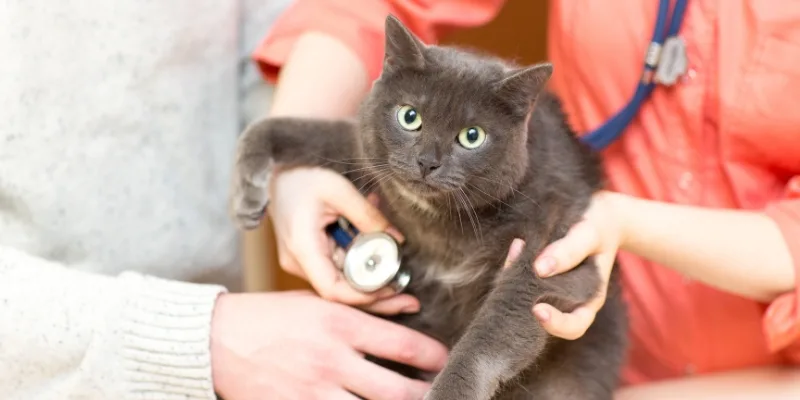“My pet seems healthy – do they still need a general health check with their vaccination?”
There are three reasons why we recommend a full consultation and health check for every pet at the time of vaccination:
It’s best only to vaccinate your pet if they’re in reasonable health
When we perform a general physical examination on your pet before vaccination, we check that it shows no apparent signs of systemic illness (particularly any significant infectious diseases). We do this because your pet’s immune system may not respond adequately to the vaccine if they are already fighting another illness. Additionally, vaccines should only be used in generally healthy pets to reduce the likelihood of any (uncommon) potential side effects.
6-monthly consultations allow us to check on your pet’s general activities and healthcare routines
During your pet’s vaccination consultation, we will ask about their care routines and general activities.
Discussing your pet’s health care routines will include asking about their parasite control regime against fleas, intestinal worms, ticks, and heartworms, if applicable. It’s easy for regular parasite control to slip through the cracks of daily life due to busy routines or simple misunderstandings about various product coverages or the required frequency of administration. Additionally, we can recommend easier or more effective routines for your pet!
When we enquire about your pet’s general activities, we will particularly ask about any potential changes in their behaviour, eating, drinking and toileting activities, and any recently noticed symptoms such as coughing or vomiting. In some cases, these questions can raise suspicions that help us to detect potentially serious diseases earlier, such as:
- Increased drinking indicates potential kidney disease, diabetes or hormonal imbalances
- Behaviour changes indicating the onset of cognitive decline (“dementia”) in older pets
- Urination frequency changes indicating urinary tract infection or inflammation
- Appetite and defecation changes indicating chronic gastrointestinal illnesses such as food allergies or gut parasites
Physical examination of your pet allows us to spot any developing health problems sooner
In addition to enquiring about your pet’s activities, we will perform a complete physical examination to check your pet for common “hidden” issues, such as:
- New lumps on your pet’s body, within their belly, or in their mouth
- The progression of dental disease, which we can reverse if treated early with veterinary dental cleaning
- Progressive, painful joint disease such as arthritis or chronic cruciate ligament disease
- Heart murmurs or arrhythmias (abnormal heart sounds or rhythms) that could suggest heart disease
- Ear infections
For pets seven years old or above, we may also recommend general blood tests and blood pressure checks to screen your pet for common internal organ problems such as chronic kidney disease, liver disease, or high blood pressure.
Early detection and treatment of these issues will help ensure your pet’s best health outcome.
So, when it comes time for your pet’s vaccination, we recommend sticking to routines to help keep things routine!


